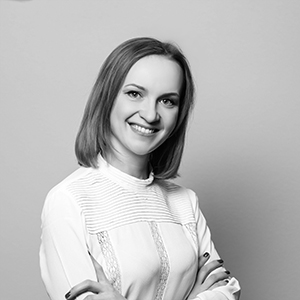The Center for International and European Studies (CIES) at Kadir Has University will hold the 7th International Neighbourhood Symposium (INS) in the lively and historic Black Sea town of Odessa between Tuesday, 13 June and Sunday, 18 June 2017. This year’s Symposium will focus on “Changemakers in the Eastern Neighbourhood and the Mediterranean South”. It will be organized in cooperation with local partners: UA: Ukraine Analytica and the Foreign Policy Council “Ukrainian Prism”.
The setting
The INS focuses principally on the Eastern Neighbourhood and the Mediterranean South, two regions that are shared neighborhoods of the European Union, its member states, the Russian Federation, and Turkey. While each region is distinct with its own historical, political, social, cultural and economic features; their contiguity implies a number of synergies and shared experiences on a variety of themes ranging from systemic dynamics to societal prerogatives. The INS aims to promote further understanding and cooperation in the Eastern Neighbourhood and the Mediterranean South and beyond by providing a forum for study, dialogue and networking in a multicultural and interdisciplinary environment.
Why Changemakers?
The term “changemaker” has gained much mileage as it has been used by Ashoka to empower social entrepreneurs and innovators, we believe that it has a wider definition. A changemaker is a business leader, a policy maker, an activist, a young leader, a scholar, as well as a social entrepreneur that believes in change while also seeking to make it happen. A changemaker is thus an innovator, a trendsetter, and a visionary; someone who is willing to take creative action to solve social and societal problems.
Hence, the aim of the 2017 edition of the International Neighbourhood Symposium is to discuss, assess, and understand the regional dynamics as well as the impact these are having on the transformation of the societies of the countries of the Eastern Neighbourhood and the Mediterranean South during the first two days of the Symposium. Expert discussions will also bring the spotlight on a number of societal concerns as diverse as politics, the role of the media, our understanding of democracy, the nexus of international development and humanitarian work, and the potential of cultural cities. In other words, while an understanding of the key dynamics at play is imperative, it is also incumbent to debate and explore how changemakers, that symbolize the potential of human capital, can affect change.
Young professionals and graduate students primarily from the countries of the Eastern Neighbourhood, the Mediterranean South, Central Asia, EU member states, and the United States are the Symposium target group. In addition, applicants from the fields of public policy, politics, journalism, and business are especially encouraged to apply. The target age group is 22-35 years of age (those born between 1982 and 1995).
Target audience
Young professionals and graduate students primarily from the countries of the Eastern Neighbourhood, the Mediterranean South, Central Asia, EU member states, and the United States are the Symposium target group. In addition, applicants from the fields of public policy, politics, journalism, and business are especially encouraged to apply. The target age group is 22-35 years of age (those born between 1982 and 1995).
DRAFT PROGRAM
Wednesday, 14 June 2017
09:00 – 09:30 Welcome
Why Changemakers?
- Dimitrios Triantaphyllou, Director, Center for International and European Studies, Kadir Has University, Istanbul
- Hanna Shelest, Editor-in-Chief, UA: Ukraine Analytica, Odessa
09:30 – 11:00 Session I: The Global Security Context
- Mustafa Aydin, Rector, Kadir Has University, Istanbul
- Mykola Kapitonenko, Associate Professor, Institute of International Relations, Kyiv National Taras Shevchenko University, Kyiv
Coffee Break
11:30 -13:00 Session II: The Eastern Neighbourhood in Upheaval
- Hannes Swoboda, President, International Institute of Peace, Vienna
- Mitat Celikpala, Professor, Kadir Has University, Istanbul
- Sergiy Korsunsky, Ambassador, Ministry of Foreign Affairs, Kyiv
Lunch
14:00 – 15:30 Session III: Developments in the Mediterranean and the Middle East
- Amin Tarzi, Director, Middle East Studies, Marine Corps University, Quantico, VA
- Alla Zakharchenko, Associate Professor, Odessa National University
- Dorothée Schmid, Head, Turkey/Middle East program, Institut français des relations internationals (IFRI), Paris
Coffee Break
16:00 – 17:15 Session IV: Politics versus Populism
- Irina Alexieva, Executive Director, Bulgarian School of Politics “Dimitry Panitza”, Sofia
Thursday, 15 June 2017
09:00 – 10:30 Session V: Civic Engagement, Democracy, and Individual Freedoms: A Debate
- Sanem Guner, Assistant Director, The Hollings Center for International Dialogue, Istanbul
- Stefanos Vallianatos, Co-Founder, FOTOESSA Centre for Education, Research and Action, Athens
- Ahmet Naguib, CSR Director, FINBI, Cairo
Coffee Break
11:00 – 12:30 Session VI: The Impact and Potential of Cultural Cities
- Tetiana Markova, Director, Tourism and International Relations, Odessa City Council
- Spiros Pengas, Deputy Mayor for Tourism Development & International Relations, City of Thessaloniki
Lunch
13:30 – 14:30 Session VII: The Media in a Post-Truth Age
- Nataliya Gumenyuk, Head, Hromadske TV, Kyiv
Free afternoon
Friday, 16 June 2017
09:00 – 10:30 Session VIII: The Nexus between International Development and Humanitarian Work
- Serdar Dinler, Operations Director, International Medical Corps, Ankara
- Ali Ercan Ozgur, Founder and Managing Partner, International Development Management (IDEMA), Istanbul
Peer to Peer Workshops
Thanos Gatsias, George Mason University and University of Malta
Andreas Kotelis, Clark Center for Global Engagement, SUNY Cortland, New York
10:30 – 11:30 Workshop 1: Group Discussions
Coffee Break
11:45 – 13:00 Workshop 2: Identifying the Triggers
Lunch
14:30 – 16:00 Workshop 3: Analyzing the Triggers
Coffee Break
16:30 – 18:00 Workshop 4: Presentation of Group Findings
Free Evening
Saturday, 17 June 2017
Breakfast
09:00 – 10:15 Workshop 5: Selecting “Our” Triggers
Break
10:30 – 11:45 Workshop 6: Tackling Forces of Change
Coffee Break
12:00 – 14:00 Workshop 7: “Our” Action Plan
Lunch / break to preprare presntations
17:00 – 18:30 Workshop 8: Presentations- Map for the Future
18:30 – 19:00 Symposium wrap up – Closing Session
In order to apply please click here.






